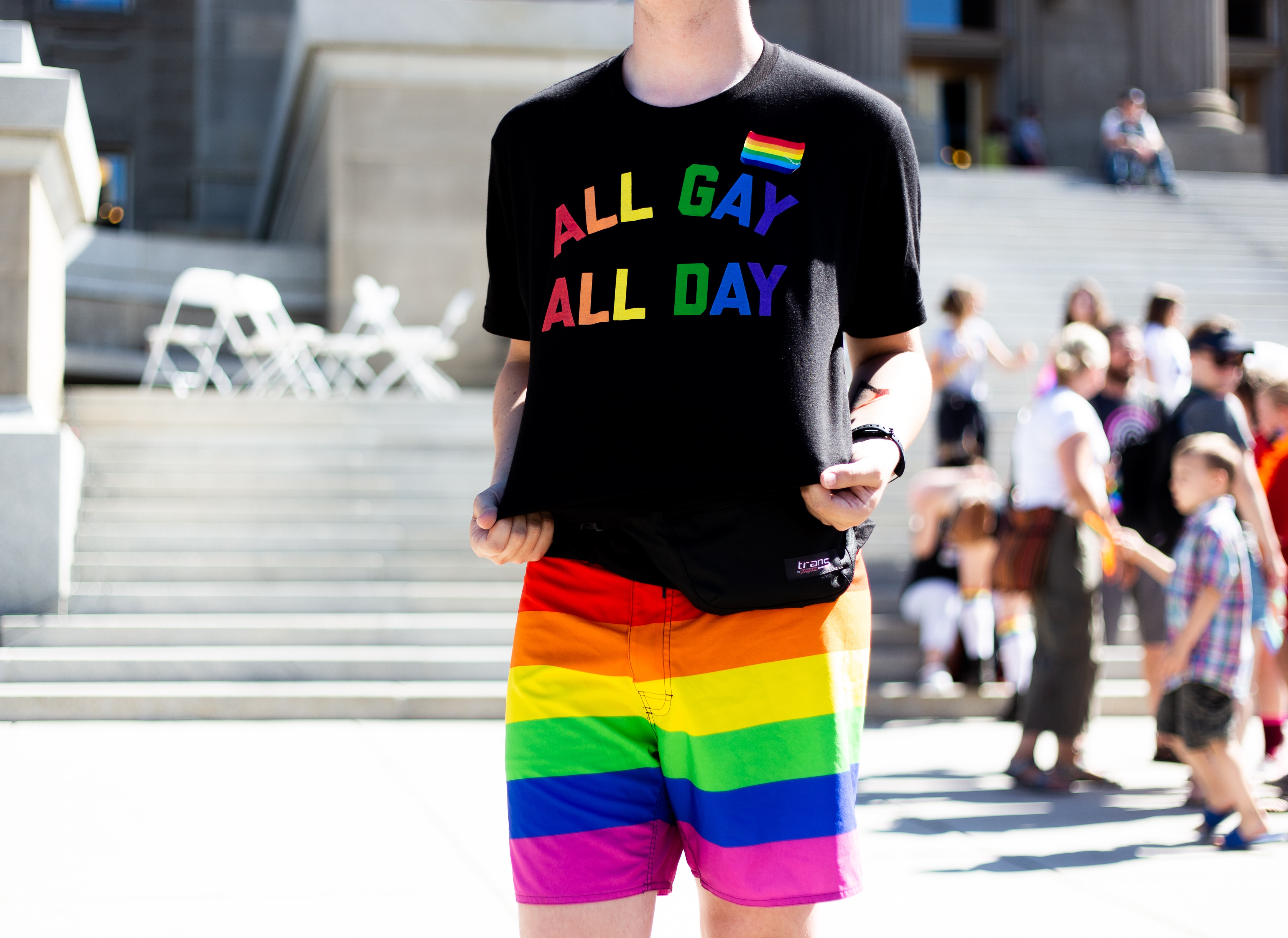
A Kentucky print shop owner just saw the state’s Supreme Court after he refused to make a gay pride T-shirt.
Blaine Adamson is the owner of Hands-On Originals in Lexington, Kentucky. In 2012, he refused to print a shirt promoting a Gay Pride event for Lexington’s Gay and Lesbian Services Organization.
This eventually led to him being the center of a longstanding discrimination court battle with the Lexington-Fayette Urban County Human Rights Commission, according to Newsweek. The HRC says that Adamson’s refusal violated the gay-rights fairness ordinance, which prohibits discrimination based on sexual orientation in employment, housing, and public accommodations.
This then led to the high court hearing this past Friday, according to NBC News. The high court heard the Alliance Defending Freedom (ADF) speak for Adamson and argue that the First Amendment protects him from having to print a gay pride message on any shirts.
“The evidence is clear that Hands On Originals serves everyone—and just doesn’t print certain messages,” ADF counsel Joe Campbell told the justices on Friday. “The First Amendment in this case cuts in Hands On Originals’ favor—[it] ensures that the government can’t use a law to force someone to print or convey a message that they find objectionable.”
“I will work with any person, no matter who they are, and no matter what their belief systems are,” Adamson said in a press conference Friday. “But when I’m presented with a message that conflicts with my faith, that’s just something I cannot print, that’s the line for me. I don’t walk into my business every morning and leave my faith at the door.”
https://www.facebook.com/AllianceDefendingFreedom/videos/734955673636057/
A statement on the Hands On website says the company “both employs and conducts business with people of all genders, races, religions, sexual orientations, and national origins. However, due to the promotional nature of our products, it is the prerogative of Hands On Originals to refuse any order that would endorse positions that conflict with the convictions of the ownership.”
But the HRC and allies aren’t buying that. At the hearing, the Human Rights Commission’s lawyer said that Adamson can’t pick and choose who to serve.
“If you buy the argument of Hands On Originals, they can do anything they want in the name of religion,” said Ed Dove an attorney for the Human Rights Commission.
“That’s why we have a public accommodations ordinance: to stop businesses from allowing certain populations to be discriminated against and not enjoy the goods and services that are being offered by that business,” added commission chair Ray Sexton. “This is where we were in the ’60s—’Well, we don’t believe you should do business with African Americans. Sexual orientation and gender identity are the civil rights issue of our time.”
Now that the state’s Supreme Court has heard the oral arguments, the judges will deliberate to come to a decision. That ruling will be announced at a later date. But so far, things are looking to be in Adamson’s favor. Two lower courts ruled in favor of Adamson twice now before the case came to the state Supreme Court floor.
But, we’ll see which way Kentucky’s high court rules in due time.
